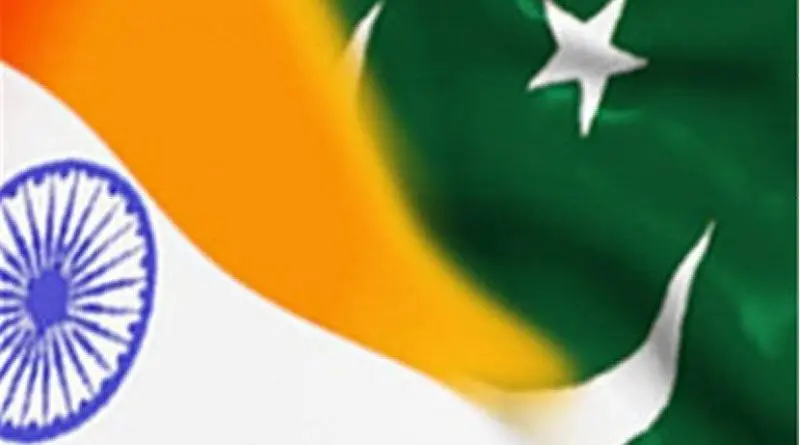20 Years After Kargil: India, Pakistan Miles Away From Ground Realities – OpEd
By Mazhar Iqbal
Over 20 years have passed after the Kargil war, yet, both India and Pakistan are miles away from ground realities in Jammu and Kashmir. There is no evidence that could suggest both these countries have learned any lessons after the Kargil adventure also known as a misadventure. They have chosen to stick to their guns and take a stubborn approach to let each other down in Kashmir. In fact, this approach of frustrating each other’s efforts on Kashmir has no link with the ground realities of the conflict zone.
Two decades ago, Pakistan was ruled by a civilian government led by former Primer Minister Nawaz Sharif. Yet, the de-facto rulers of the country were powerful military commanders. They backed an infiltration on the Line of Control (LoC) in disputed Jammu and Kashmir that led both countries to an undeclared war. India was headed by Prime Minister Vajpayee and both countries were far from reaching at a common ground to settle the Kashmir issue. In reality, the 1998-nuclear tests had put them on a greater risk of further alienation on Kashmir.
As there was a heightened sense of gaining absolute military power in the region. This perpetual muscle flexing policy has never brought any good to the people of Kashmir. There was a need for an international mediation on Kashmir in 1998/99. The need of a global approach on Kashmir is still there in 2019.
In fact, there is little progress on international mediation efforts towards settling Kashmir. None of these two countries can proudly face any international forum where they could say that a forward progress has been made in last two decades. In reality, they have moved back and taken steps that have been damaging not only for the people of the state of Jammu and Kashmir but also for both countries.
There is no real intention to solve the issue politically and diplomatically. This statement is true on both sides. The steps Pakistan has been taking on Kashmir in last 20 years mainly served more of its own interests than the people of Kashmir. For instance, keeping the electorate and military on their side has been the policy of political leaders of all those parties that took turns in the government. The political leaders and political parties from Pakistan administered Kashmir have no say in mainstream politics of Pakistan.
In national politics they are almost invisible and unnoticeable. They are rarely taken on board when making decisions of national politics in Pakistan. Due to the so-called separate legislative status given to AJK Legislative assembly, the people of Azad Kashmir have no say in decision making in Islamabad. So, the responsibility of devising and guarding the state policy of finding ways and means of diplomatic and political solution of Kashmir issue mainly stays within the corridors of the federal government. Now, how much that policy have been successful? At least, people in Jammu and Kashmir have not reaped the fruit of this policy.
The damages to Kashmir are not limited to lack of will towards political solution. The Indian held Kashmir has been facing a spate of home grown insurgency that has led the terror-hit state into a situation where India took the decision of the abrogation of Article 370. Ever since the rise of BJP and RSS in India Muslims in general and Kashmiris in particular have been targeted of a state run policy of hatred. So, there is no intent to deliver on Kashmir politically or diplomatically, at least in Modi’s India. After two months of lock down in Kashmir valley, Indian government has indicated that any future political setup in the state would be either controlled by the Centre or a BJP backed government based in Srinagar. Modi government has decided to remove even those rights of the people of Jammu & Kashmir that they had secured even before the partition of India.
On other side of the fence, Pakistan’s rulers have still got a sensational approach to deal with the issue. They are more than convinced that Kargil was a right option towards any solution to Kashmir issue and India should not forget what the lesson taught to them in the Kargil war. The people of Jammu and Kashmir question the legitimacy of such a rhetorical approach towards solving the issue. They have witnessed that violence breeds violence and it has no end. The level of frustration and alienation has gone up ever since the events of Kargil. In fact, neither the politicians, nor the military have acknowledged the bitter reality of growing feelings of alienation and mistrust in Pakistan administered Kashmir.
The authorities are now routinely facing angry mobs either threatening to cross the Line of Control or putting demands of an independent Kashmir. The more recent spate of protests have been sparked by events in other side of the state. Ever since the abrogation of Article 370 by India, Pakistani authorities have blocked various attempts by activists from pro independence parties to cross the Line of Control.
Last Saturday, the activists from the Jammu and Kashmir Liberation Front (JKLF) began the march from southern districts of Mirpur and Bhimber and after two days they reached at Line of Control (LoC) near Chakothi in Muzaffarabad region. There were various attempts at national and local level to stop these protesters to violate the cease-fire line. Yet, they are adamant to cross it and show their commitment to Kashmir cause.
In fact, both India and Pakistan are far from resolving the Kashmir conundrum. Pakistan, by not listening to independence voices in Azad Kashmir is in danger of facing a larger rebellion from Kashmiris as growing frustration can be seen and observed in recent protests. On the other side, India by revoking Kashmir’s special status, has further alienated Kashmiris from the rest of India.

